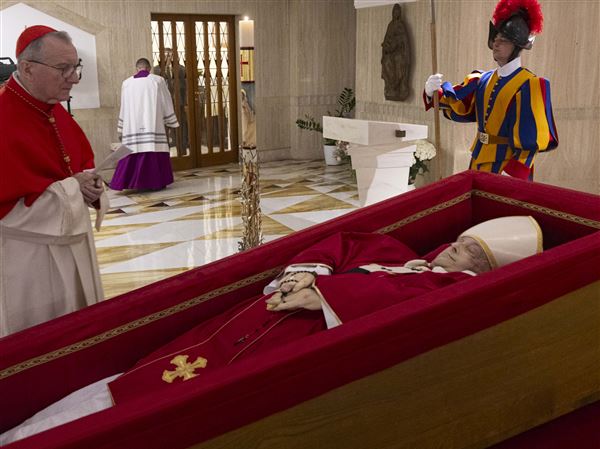Novelist Michael Chabon has awards and critics’ acclaim galore, yet he rates his byline in the New York Review of Books as among his greatest honors.
Appearing at a 50th anniversary reading for the review last year, Mr. Chabon was almost giddy in marveling at his inclusion in the pages of America’s foremost mainstream intellectual magazine, thrilled to join the pantheon of great writers who’ve made it such an important publication.
His happiness was captured in the HBO documentary “The 50-Year Argument,” produced and directed by Martin Scorsese and documentarian David Tedeschi and premiering at 9 p.m. Monday. They focus on the 84-year-old editor, Robert Silvers, who co-founded the publication with the late Barbara Epstein in 1963 during a New York City newspaper strike.
Launched with little money, the cheaply printed review attracted plenty of advertising from publishing companies desperate to promote their new books as the strike persisted. It made its first profit three years later and continues in the black supported by 150,000 subscribers, including this reviewer.
Lovingly photographed in his West Greenwich Village office crammed with books and manuscripts piled head-high on his desk, Mr. Silvers, dressed in suit and tie, is captured eagerly assigning and editing stories. He retains the enthusiasm of a younger man combined with an eclectic curiosity that moves from genetics to poetry in the space of minutes.
Mr. Silvers was an editor at Harper’s magazine when it published “The Decline of Book Reviewing,” Elizabeth Hardwick’s 1959 broadside on The New York Times Sunday Book Review, calling it a “provincial literary journal” full of “flat praise and faint dissension.” Ms. Hardwick was married to poet Robert Lowell, both friends of Mr. Silvers and Ms. Epstein. Joined by her husband, Jason Epstein, a Random House editor, the five cooked up the NYR in their Manhattan apartments.
The documentary is also a chronicle of the major currents in America’s political and cultural history over 50 years. The review plunged into those currents with commentary and coverage of such subjects as Vietnam, feminism, the CIA, Watergate and foreign policy controversies from Central America to the fall of the Soviet Union.
The filmmakers found terrific footage of NYR contributor Susan Sontag dueling at a seminar with Norman Mailer over feminism in the 1970s following Mr. Mailer’s provocative essay “The Prisoner of Sex,” also in Harper’s magazine. Before her trademark white stripe of hair, a smiling Ms. Sontag playfully jabbed at the pompous Mr. Mailer, who called her a “lady writer.”
Then there was Gore Vidal, whose frequent contributions also knocked Mr. Mailer around. The documentary replays a “Dick Cavett Show” segment where the two squared off after the latter compared the former’s position on women to that of Charles Manson. Mr. Mailer advanced threateningly toward Mr. Vidal, who cringed in fear as he approached.
Oh, for late-night talk shows like that again.
The “argument” of the film’s title tries to define the NYR’s role over its 50 years as an international sounding board of ideas freely expressed without a particular ideological position. Reviews of books are starting points for a greater discussion of themes cultural and political.
Mr. Silvers does have one bias: No “trivial books” are welcome in his magazine.
“The 50-Year Argument” actually underplays book reviews in favor of the publication’s journalism. One graphic device shrinks the “of Books” in the review’s title to emphasize its coverage of current events.
Joan Didion, who first wrote for the NYR covering political conventions as a young woman, was assigned by Mr. Silvers to the “Central Park Jogger” case in 1989 when five juveniles were convicted of raping a woman — Trisha Meili, a Pittsburgh-area native — in a night of so-called “wilding” in the park.
Now shrunken and faded with age, Ms. Didion proudly recounted her skepticism about the charges at a time when the New York media hailed the police for arresting the five. The case later collapsed when another man confessed and the five were exonerated. They sued the city and won a $41 million judgment earlier this year.
“The 50-Year Argument” is a rare animal among documentaries because it honors intellectualism — a dirty word in some quarters — rather than a person or an event and proves that ideas are powerful and effective in the hands of serious-minded people. The film also presents a fresh view of the nation since 1963 through the words, not actions, of the time’s best minds.
First Published: September 28, 2014, 4:00 a.m.
















